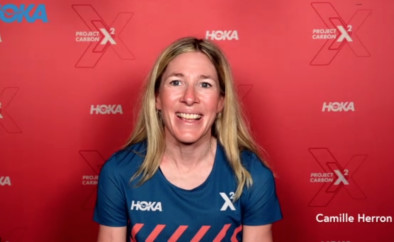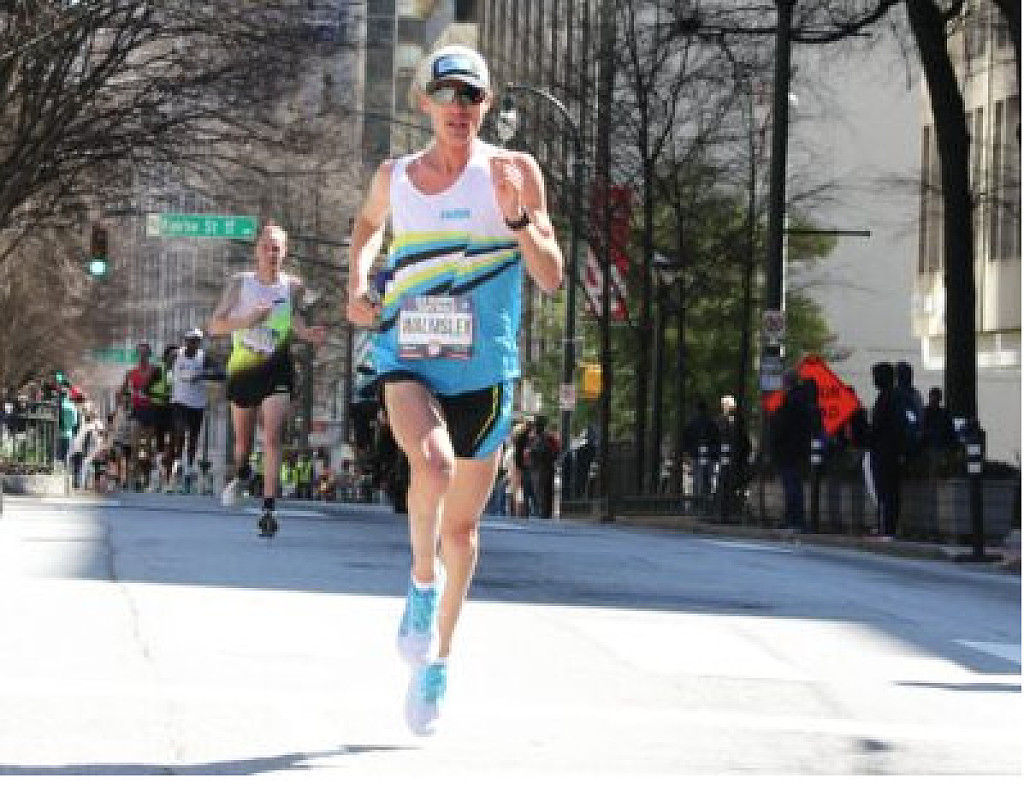Running News Daily
Running News Daily is edited by Bob Anderson. Send your news items to bob@mybestruns.com Advertising opportunities available. Train the Kenyan Way at KATA Kenya and Portugal owned and operated by Bob Anderson. Be sure to catch our movie A Long Run the movie KATA Running Camps and KATA Potato Farms - 31 now open in Kenya! https://kata.ke/
Index to Daily Posts · Sign Up For Updates · Run The World Feed
Jim Walmsley, Hayden Hawks Going for 100-km World Record at Project Carbon X 2 in Arizona
A group of top ultra runners will gather in Chandler, Ariz., with hopes of breaking the World Athletics records for 100 kilometers on the road. The event, called Project Carbon X 2 and staged by Hoka One One for the benefit of their athletes, will start and finish at the Wild Horse Pass Motor Sports Park and will use some of the same roads as The Marathon Project which was held with great success last month.
“I’m incredibly excited,” said Hoke One One president Wendy Yang on a video conference today with reporters. “Also feel super fortunate that the team was able to bring this event together.”

The pandemic has meant dramatically fewer competitive opportunities for road running athletes, especially ultra runners who specialize in distances longer than the standard marathon distance of 42.195 km, or 26.2 miles. However, since most ultra runners train alone or in very small groups, the pandemic has given them a chance to put in long blocks of uninterrupted, COVID-safe training and improve their strength and fitness. Tomorrow’s race will offer them a chance to show off their work.
We wanted to give our athletes the chance to compete,” Yang continued. “We felt like our athletes really needed this chance.”
The top targets for tomorrow’s race are the ratified World Athletics 100-K records of 6:33:11 for women, set by Japan’s Tomoe Abe in 2000, and 6:09:14 for men, set by Japan’s Nao Kazami in 2018. Both records were set at the same event, the Lake Saroma 100-K in Hokkaido, Japan. The women’s record works out to a pace of 3:56 per kilometer, which means running two 2:46 marathons back-to-back plus another 15.6 kilometers at the same pace. The men’s record pace of 3:42 per kilometer translates to running back-to-back 2:36 marathons plus the extra distance.
“You never know what can happen in an ultramarathon,” said Hayden Hawks one of the top contenders in the men’s division. Hawks smashed the course record at the venerable JFK 50 Mile (80.5 km) in Maryland last November, clocking 5:18:40. His pace at that event, which included rugged trails and some steep climbs and descents, worked out to 3:58 per kilometer. He said he’s been practicing on flat, loop courses to simulate the conditions in Arizona, and that with his strength and mental toughness he has a chance at the record.
“My greatest strength is probably just my stubbornness,” Hawks said. He added: “I feel like I have this mental strength to push through a lot of pain.”
Hawks’s main rival tomorrow will be ultra star Jim Walmsley, the man whose record he broke at the JFK race. Walmsley is best known as a trail runner, and is the course record holder for the impossibly difficult Western States 100-Miler in Auburn, Calif., where he ran 14:09:28 in 2019 (he also won in 2018). Walmsley already holds the world best for 50 miles on the road of 4:50:08. Using the popular Riegel Formula, that’s equivalent to 6:05:51 for 100-K, comfortably under the 100-K world record by more than three minutes.
Note: Walmsley was on the LetsRun.com Track Talk Podcast this week where he talked about his 100-k world record attempt, his big plans for 2021 and his cancelled 2020. Highlights here.
“I’m really looking forward to improving on my past performances in the 100-K,” Walmsley said today, admitting that he hasn’t yet perfected his approach to that distance yet. He continued: “I think I’m bringing a more mature approach of being more patient.”
If they don’t eclipse the world record, both men could surpass Max King’s USA record of 6:27:44 set in 2014.
On the women’s side, Camille Herron is the top entrant, and she rated her fitness at “80 to 85 percent.” Like Hawks, the holder of the world best for 24 hours on both the road and the track recently won the JFK 50-Miler. She played down the possibility of getting the world record, but said she was in about the same shape as when she won the famed Comrades Marathon in South Africa in 2017 over a distance of 86.73 kilometers. She allowed that a personal best (sub-7:08:35) was possible, despite only doing a six-week build-up.
“I’m definitely confident in my fitness,” said Herron who recently switched sponsors from Nike to Hoka One One and who will be doing her first race in Hoka shoes. She added: “I’m getting fitter every week. I have a pretty good idea of what I’m capable of.”
Also competing in the women’s division is Irish Olympic marathoner Caitriona Jennings, 40, who will be making her 100-K debut. Jennings will be taking a cautious approach to the race because she is 12 weeks pregnant. She said that there will be plenty of ice and fluids available on the course so that she can keep her core temperature in check.
“It wasn’t a decision I took lightly,” she said emphasizing that she had consulted with her doctor before agreeing to compete. She added: “I think (the water and ice on the course) will help with hydration and keep my temperature down.”
The athletes will start and finish on the race track, and will run about nine laps of an 11-kilometer circuit (Walmsley estimated that each full lap would take him about 41 minutes). The course was measured by two World Athletics “A” measurers, Joe Galope and Jay Wright (an “A” measurer must be used in order for a course to be eligible for a World Athletics record). The event will have in-competition drug testing done by the USA Anti-Doping Agency, also a requirement for setting a world record.
All of the competitors will be wearing the new Hoka One One Carbon X 2 shoe. Colin Ingram, Hoka’s director of product, called the new shoe “one of our sharpest tools in the box.” He explained that the shoe had been improved over its predecessor by incorporating “swallow tail construction” to improve deceleration on the foot strike, and lowering the carbon plate to get it closer to the ground.
“It allows for a more natural gait,” Ingram said.
While Hoka One One has not disclosed the cost of the event, it is significant, especially making it as safe as possible from the coronavirus. Mike McManus, Hoka’s director of global marketing, said that every athlete had at least three antigen PCR tests in the last week, and that masks and social distancing were required at all times except when the athletes are on the course. An industry insider contacted by Race Results Weekly estimated the cost of COVID mitigation for the event was around $60,000.
“It’s been a huge challenge for us to make this event happen in a very safe way,” McManus said.
The race will be streamed live and free at hokaoneone.com beginning at 9:00 a.m. Eastern Standard Time.
by Let’s Run
Login to leave a comment




